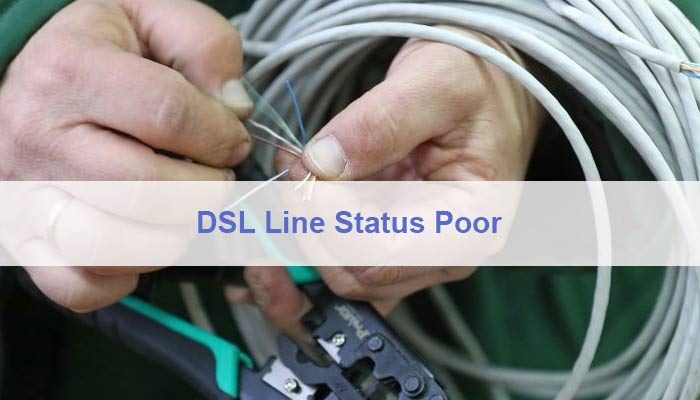With the recent changes in the business world, networks and companies have become vulnerable to new threats. Traditional infrastructure protection strategies are no longer sufficient because of the workforce’s constant mobilization and the digitization of critical data. Since the threats related to remote access may have serious consequences, adopting well-fitted cybersecurity solutions is of great importance for modern businesses.
In addition to regulating remote users’ access, it is significant to manage the activity of users on-premise. To protect their networks from unsafe internet traffic, companies need security measures such as URL filtering, malicious code detector, and data leak protection. Luckily, there is a solution that gathers these measures under one roof: Secure Web Gateway. In this article, we will explain what Secure Web Gateway is and why companies need it.
What is a Secure Web Gateway?
Secure Web Gateway, in essence, is a network security service that reviews online traffic content and removes anything regarded as dangerous or a risk. With Secure Web Gateway services, companies can restrict, manage, and regulate user activities. By filtering malicious traffic this network security service aims to prevent risks and threats from accessing internet-based applications by screening user and online activity at the software level.
Thanks to this service, companies can set regulations and security policies on how users are accessing the web and which websites they can access. This helps you to assure that users connect to the web following the rules and standards set forth by your company. With this method, companies can minimize the risk related to internet access.
These regulations and rules can be applied both for on-premise and remote devices. Secure web gateways, which operate between devices and the web, offer enhanced network security by comparing internet traffic with corporate standards to verify that unwanted programs and services are prohibited and unreachable.
To provide businesses with comprehensive network protection, this service incorporates major security technologies like filtering, app management, malicious code detector, and URL filtering. Before we take a look at these technologies, let’s see how a Secure Web Gateway works.
How Does It Work?
Secure Web Gateway, as the name implies, functions as a gate that analyzes all the traffic flow by following pre-set security policies. This analysis is executed by utilizing various technologies like URL filtering, malicious code detecting, and SSL filtering. This service can be utilized in two ways. While some Secure Web Gateways operate on proxy servers, others come as software.
When devices try to access an application or a website they are routed to Secure Web Gateway first, the service examines the access requests and forwards them only when they meet the rules and standards set forth by the company. Reversing the procedure, the Secure Web Gateway first analyzes all incoming requests before passing them on to devices. With that said, let’s take a look at the essential technologies a Secure Web Gateway utilizes.
Components of Secure Web Gateway
Secure Web Gateway utilizes various technologies to provide companies with comprehensive web security. These tools are essential for the Secure Web Gateway service to function properly. Even though these technologies may differ depending on the vendor, there are core components to accomplish a thorough SWG (Secure Web Gateway) security.
URL Filtering
By using URL filtering, specific URLs may be “blocked” from running on a corporate network. By analyzing online traffic against a database, URL blocking sets security controls and keeps users and endpoints from visiting dangerous websites. Companies can prevent users from accessing unauthorized websites and online apps by using URL filtering tools.
Malware Detection
Malware detection is the process of identifying whether a certain application or website contains harmful viruses and worms. SWG services analyze data sent and received to check if they contain any malware code. If an SWG determines malware, it immediately blocks the website or application to protect the corporate network.
App Management
Administrators may detect, ban, or restrict usage of online apps and interfaces using app management tools, which allows them to define detailed web access controls depending on users. With app management tools companies can ensure the privacy and security of the data utilized by and exchanged across apps inside an enterprise.
Data Loss Prevention
Data loss prevention (DLP) is the process of identifying and stopping sensitive data breaches, data leakage, and unintentional deletion. DLP is used by businesses to maintain and safeguard their data as well as to adhere to legal requirements. By monitoring data transit and abiding by industry compliance requirements and standards, data loss prevention prevents your company from unintentionally losing sensitive and important information.
Content Filtering
The definition of content filtering is the monitoring and blocking of undesired emails or web pages. Solutions for content filtering work by defining data patterns and adding text or graphic elements. By preventing access to websites that are known to be infected with malware, content filters help companies secure their users’ data and themselves against unwanted behavior.
Why Do Companies Need a Secure Web Gateway?
With the coronavirus outbreak, new work models became widespread. However, most companies decided to keep these work models even after the outbreak because of their benefits. Yet, they have some downsides, too. Since these work models led employees to access the corporate network from distant locations, companies started to need more suitable network security solutions.
Also, the increasing digitization of sensitive data and the widespread use of cloud services and apps bring along new vulnerabilities. That is why companies and organizations need new security solutions rather than traditional ones. Because of the variety of known risks, improper sites, internet hazards, and the sheer volume of vulnerabilities that are pervasive on the Internet, SWGs are increasingly essential for many enterprises.
These network security services help companies to protect the data they store as well as employees’, customers’, and associates’ confidential information. Besides enhanced security, SWGs may increase the efficiency and productivity of employees by providing more secure access to the Internet.
Final Words
Data and network protection mean more than security in the modern business world. When companies fail to protect their network they may face serious consequences due to regulatory compliance requirements. Also, establishing a secure business environment helps you to build brand trust.
Network security solutions such as Secure Web Gateway provide companies with more suitable measures against sophisticated cyber threats. You can use SWG solutions to connect your remote employees with the corporate network allowing you to benefit from remote work models without concern about data breaches and leakages. You can also make sure that employees may access corporate resources safely and easily from any place.








